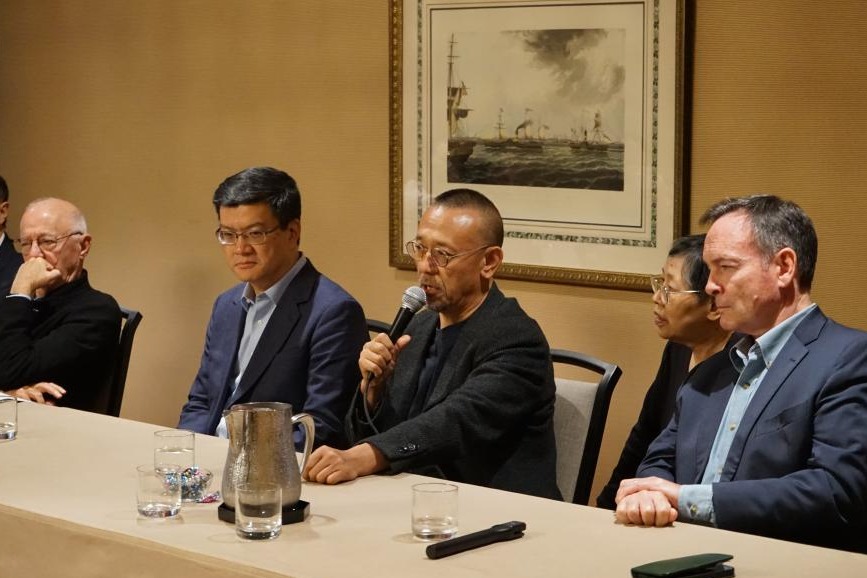US universities tread warily


Schools are mixing direct and remote learning as they reopen their doors
Colleges and universities across the US are pushing out a variety of plans to reopen this autumn amid the novel coronavirus pandemic.
Campuses sent their students home beginning in mid-March and turned to online teaching once COVID-19 reached the country.
But for the coming semester, schools such as Harvard, the University of California, Berkeley, and UCLA announced that they would offer only online courses, although Harvard plans to let about 40 percent of undergraduate students live on campus if they lack an alternative residence.
Many schools-including MIT, Columbia and Stanford-said they would offer a mix of both remote and in-person teaching.
To ensure a safe environment, universities are taking various measures, but most are requiring wearing face masks in group situations. Schools offering in-person education will not be operating at full capacity to ensure that social distancing is possible.
The University of Texas in Austin has limited in-person classrooms at 40 percent of capacity. The rest of the students will be taught online.
UT Austin's reopening plan, called Protect Texas Together, requires on-campus students to self-quarantine for 14 days before going to classrooms and includes a phone app that offers coronavirus tests and related health information.
In addition, daily screening for COVID-19 symptoms will be conducted. All classes will be held online after the Thanksgiving holiday at the end of November.
The plan also lists possible reasons for a campus shutdown: action by the governor or other public officials, sharply reduced hospital capacity, a testing shortage on campus, unmanageable spread of the virus or the death of a student from COVID-19.
While a student death from the disease could trigger a school closure, it seems that a staff or faculty member's death would not. In early July, a UT Austin custodial service worker died from the virus, the first COVID-19 death on campus.
Chris Marsicano, a professor at Davidson College in North Carolina, is studying institutional responses to COVID-19. He has not heard of a similar phased approach to shutting down by any other university, he said.
Marsicano called the shutdown list a "brilliant strategic move" because he said it creates an "accountability mechanism" that can potentially ward off campus closure.
In-person tuition
Some schools are taking measures to offer in-person teaching. Rice University in Houston is building nine temporary shelters-four temporary structures and five open-sided tents-to allow for social distancing.
"These more open spaces will accommodate larger classes, up to 25, and events, up to 50, for now with proper social distancing," said David Leebron, president of Rice University.
Rice also arranged for students from China who cannot get to Texas to take courses and live on campus at Southern University of Science and Technology in Shenzhen. "We look forward to welcoming them at a later date," Leebron said. "Keeping everyone safe has required massive planning: reducing the number of people on campus, reconfiguring classrooms, arranging for frequent testing based on risk and implementing contact tracing."
He estimated the cost of all such measures will exceed $15 million.
Students and faculty coming to the campus will have to sign pledges "regarding their behavior, and, in particular, wearing masks and keeping physically distanced, to reduce the spread of the disease", Leebron said.
He said that 77 percent of the student population will be in Houston for the coming semester and that about 40 percent of that total will live on campus.
Despite measures Rice is taking to ensure a safe environment, some question the wisdom of in-person learning during a pandemic.
Moshe Vardi, a Rice professor, opposes it. In an open letter to the school's online newspaper, he said Houston "is simply not safe right now" and said that he doubts students will follow the guidelines.






























